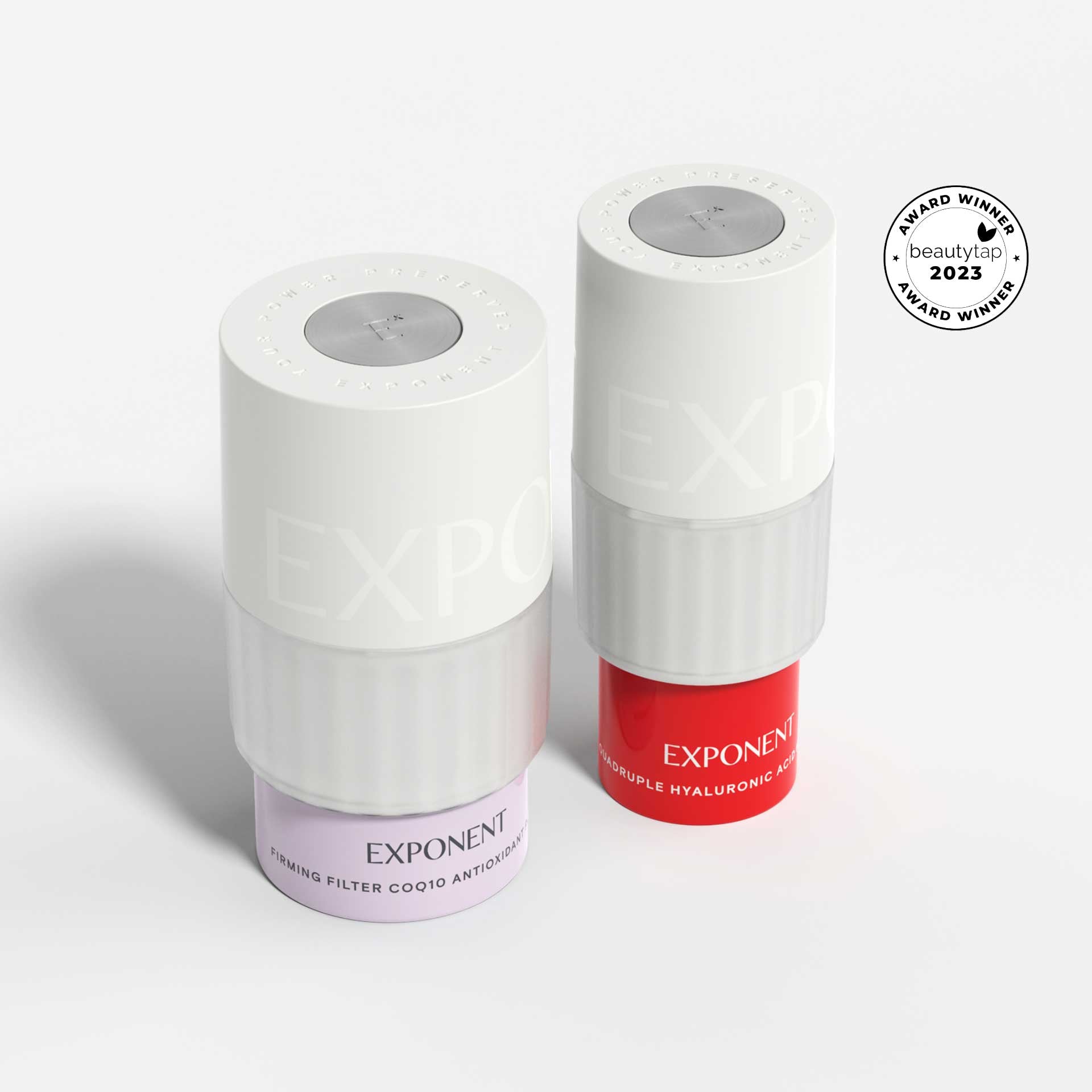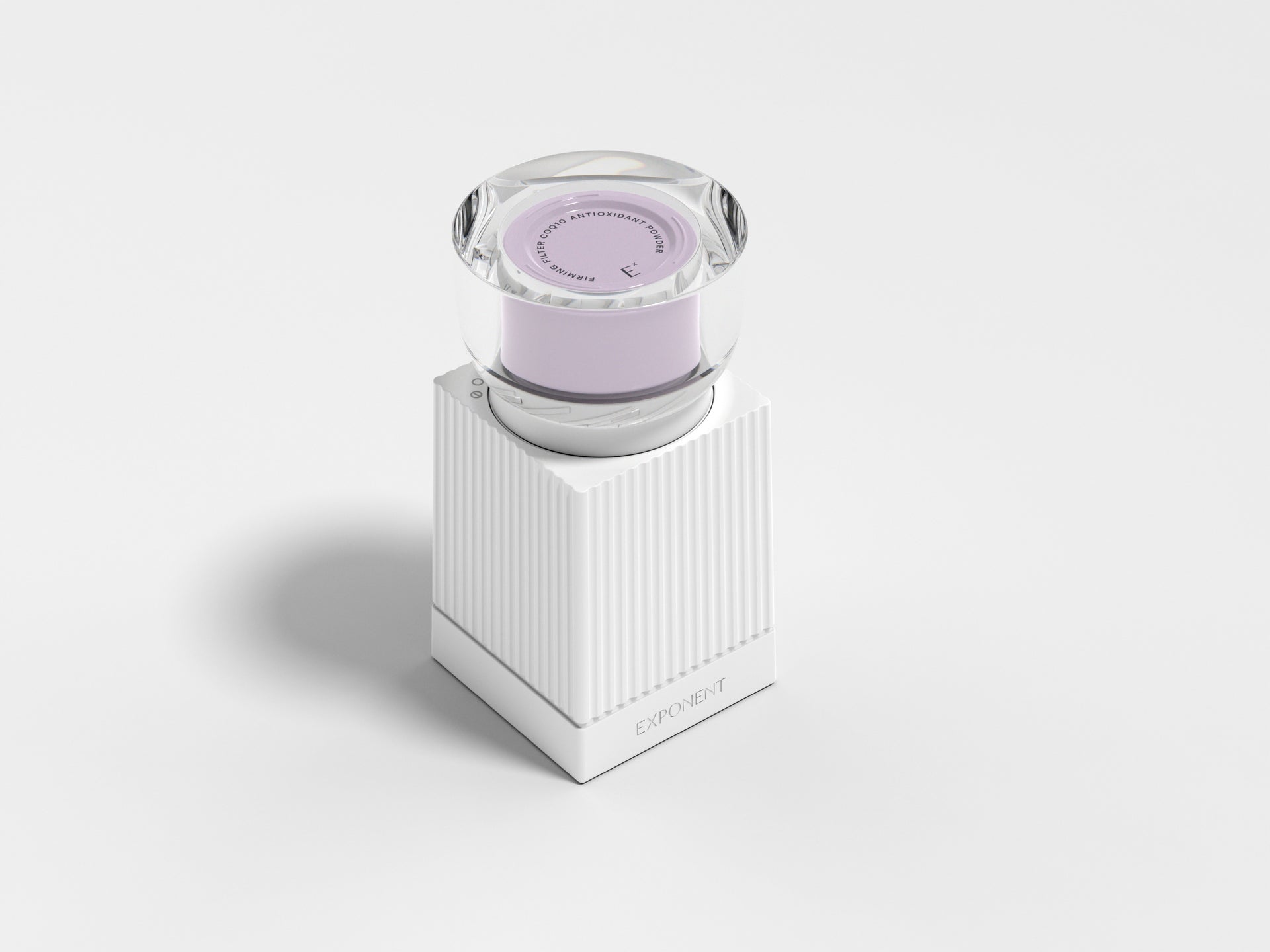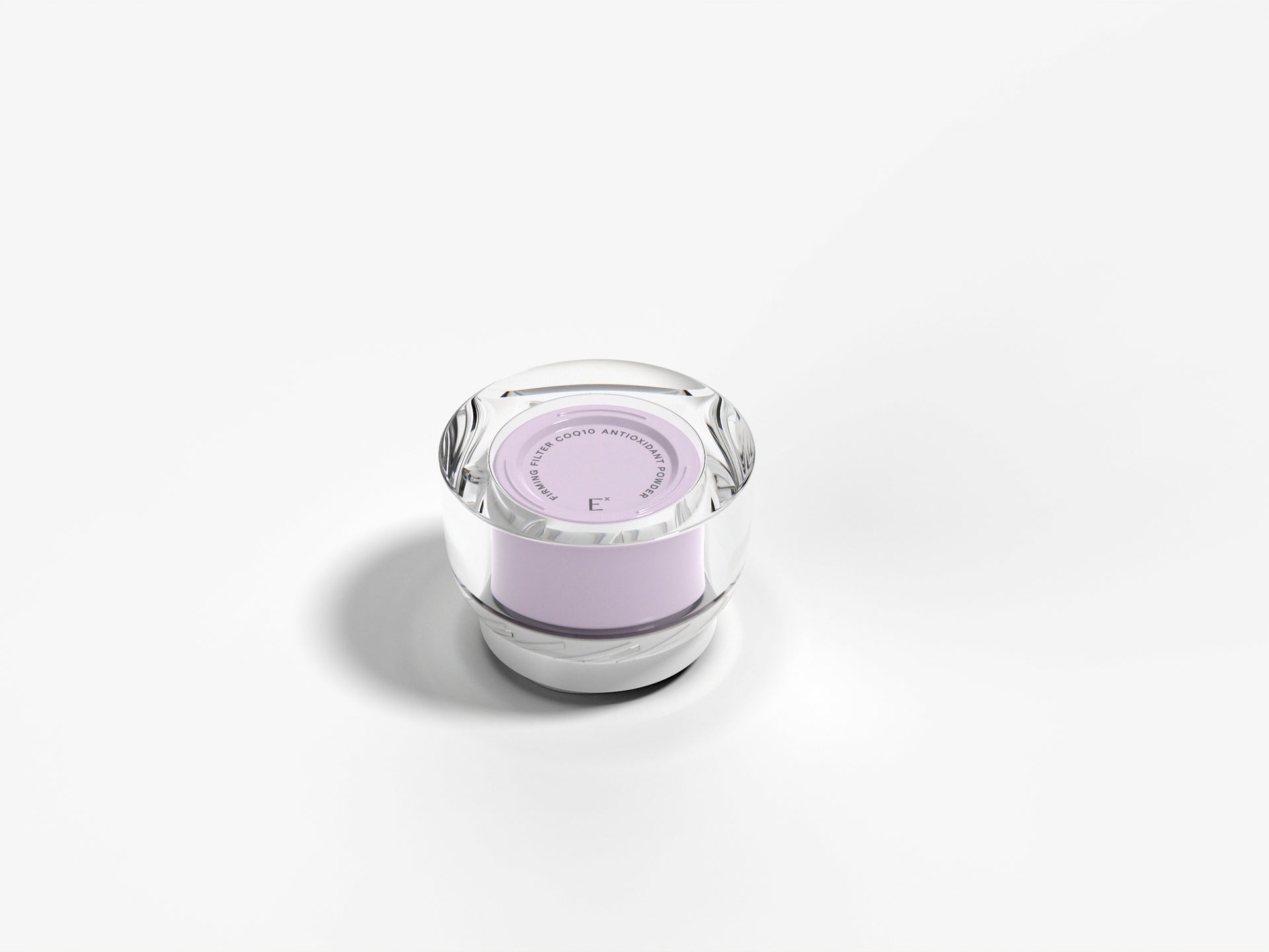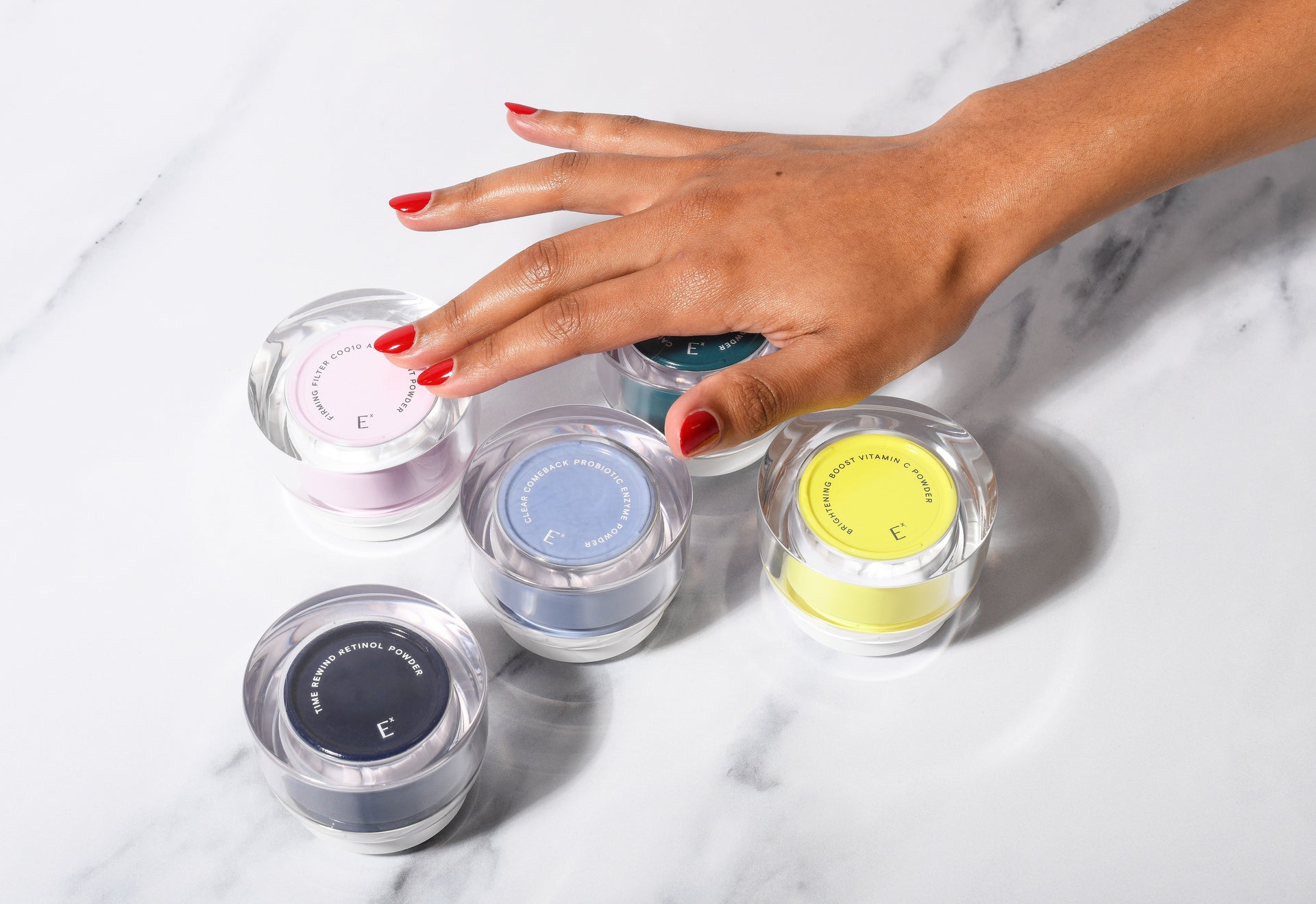You've probably heard a lot about antioxidants. Perhaps you've seen viral Instagram posts of dermatologists and skincare gurus praising antioxidants and how much you need them every day. Like sunscreen, using antioxidants is non-negotiable as they are crucial for keeping the complexion protected and healthy. With free radicals everywhere ready to damage the skin and cause it to age prematurely, the use of antioxidants should be top priority. So what exactly do antioxidants do, why do they attract a great deal of attention, and how should you use them in your routine?
What Are Antioxidants?
Antioxidants is an umbrella term for compounds that connect to neutralize reactive oxygen species, delaying and preventing cell damage.[1] In layman's terms, antioxidants are naturally occurring vitamins and minerals that defend the skin against free radicals before they can deteriorate DNA and maim collagen. Aka, why they're often referred to as the youthful fountain. Without enough antioxidants in the body, the cells and tissue get corrupted by free radicals, leading to skin damage and sometimes diseases.
What Are Free Radicals?
Time to get unpuzzled about what free radicals are in the body, what causes them, and how they harm the skin. Free radicals are unstable and highly reactive molecules with unpaired electrons that rob healthy cells of electrons, weakening the cells' DNA. Free radicals attack a variety of molecules in the body, but lipids and proteins are their main target.[2] This leads to a depletion of collagen and elastin levels which makes the skin lose strength and elasticity and causes wrinkles.
The culprits that cause an increase in free radicals are often UV rays, pollution, smoke, and even some medicines.
What Do Antioxidants Do?
The primary role of antioxidants is to stop the formation of free radicals in the body by donating their electrons. Free radical molecules have one or more electrons missing, thus causing cell oxidation and damage. The incomplete molecules steal electrons from healthy cells in our bodies to complete themselves, and when the number of free radicals exceeds antioxidants, it leads to a reaction called oxidative stress.
This is where antioxidants come in: they donate an electron to rampaging free radicals and neutralize them, reducing their capacity to harm cells.[2] In turn, this prevents the development of certain diseases in the body while also preventing and limiting skin damage.
More alarming is that when free radicals oxidize healthy cells in the body, the latter becomes a free radical, creating a snowball effect that leaves behind a biological carnage.
What Do Antioxidants Do for Skin? The Benefits of Antioxidants
Antioxidants benefit the skin in various ways as they work to protect and correct at the same time. For this reason, antioxidants are considered the pillars of any skincare routine. In addition to their ability to scavenge free radicals, each antioxidant has many other benefits for your skin as well.
Benefits of antioxidants for skin:
- Prevent protein degradation
- Offset photodamage
- Encourage skin repair
- Hinder hyperpigmentation
- Calm irritations
Frequently Asked Questions About Antioxidants
Because they are so complex and involved in various processes in the body and skin, there are a lot of questions about antioxidants' activity. You'll soon be up to date with what these free radicals scavengers do for your skin and why everybody keeps them on a pedestal.
What happens when you take antioxidants?
When you take antioxidants from foods (colorful fruits and vegetables), the body's system of fighting free radicals strengthens. In turn, this encourages damaged cell repair and protects against further free radical attacks, lowering oxidative stress-related diseases like cancer. Having a diet rich in antioxidants also has plenty of benefits for the skin, especially in reducing photoaging — a 15 years study found.[3]
Do antioxidants make your skin better?
Antioxidants work hard to make the skin better at fighting oxidative stress, the culprit that induces premature aging. Antioxidants are essential for preventing the formation of fine lines and wrinkles. They play a key role in defending against photoaging as they protect the elastin and collagen proteins which are responsible for firmness and elasticity.[3]
Can antioxidants brighten skin?
Not all antioxidants brighten skin, but all antioxidants prevent uneven tone by stopping UV from inducing excess melanin production. However, certain antioxidants interact with the enzyme responsible for pigment production, inhibiting its action and brightening dark spots. Among these, we count vitamin C, resveratrol, coenzyme Q10, and green tea.
Do antioxidants reduce wrinkles?
Antioxidants reduce wrinkles through a few mechanisms, the main being their capability to neutralize free radicals and stop them from weakening the collagen in the skin. At the same time, some antioxidants actually have collagen-boosting benefits, meaning they aid in increasing skin firmness and minimizing fine lines and wrinkles. Two of the most potent antioxidants effective at reducing wrinkles are vitamin C and CoQ10, as they are involved in inducing collagen production while protecting against collagen degradation.
Which antioxidant is best for skin?
The most lauded and researched antioxidant is vitamin C, without a doubt. However, all antioxidants are needed for skin protection and repair, and they often have other sites of action besides fighting free radicals. For instance, vitamin C, retinol, and CoQ10 are great at addressing wrinkles because they promote collagen. Green tea is a calming antioxidant that suits sensitive and breakout-prone skins. Vitamin E works wonders for dry skin due to its softening and emollient properties, while niacinamide and resveratrol are best for oily skin types, thanks to their capacity to balance oil production.
For the record, antioxidants boost each other when used in tandem, so applying a cocktail of antioxidants has more chances to stop free radicals from wreaking havoc on your skin.
What is the shelf Life of antioxidants in skincare?
To be beneficial, ingredients must be stable, and since antioxidants are prone to degradation when exposed to light and air, this seems difficult to attain. That's because antioxidants tend to oxidize and lose their benefits quickly — as in the first weeks of use — so keeping them shielded from the daily environment that can render them ineffective is crucial. That being said, dark, airtight bottles are ideal for antioxidant-rich skincare products, although this is not a long-term solution. The solution comes from products activated at the moment of application without ever letting air or light get to the formula. Wondering how this can even be possible? Click here to learn all about it.
How to Use Antioxidants for Skin
To enjoy all the protection and repairing benefits of antioxidants, you should use them daily in your AM routine. The preferred method is through serums, since they deliver more concentrated actives into the skin. After cleansing and toning, layer an antioxidant-rich serum, lock it with a moisturizer, and follow with sunscreen. It's essential to apply antioxidants before exposure to free radicals sources as that's how they fulfill their protective role.[4]
Pro tip: Using a combination of vitamins C and E with sunscreen increases photoprotection, reducing the chances of getting wrinkles and skin discoloration.[5]
Start Integrating Antioxidants into Your Skincare Routine with Exponent
 |
| SHOP NOW: Exponent Beauty Firming Filter CoQ10 Systems |
Now that you know all about how to use antioxidants for skin and why you should do, it's time we got to the good bit: the best antioxidant serum that keep actives in and the elements out, preventing photoaging. Our Firming Filter CoQ10 Antioxidant Serum packs 0.5% coenzyme Q10, which along with quercetin, protects from oxidative stress while working synergistically with the four molecular weights of hyaluronic acid to increase hydration and boost firmness. Here's to skincare raised to your power.
Footnotes
- Addor FAS. Antioxidants in dermatology. An Bras Dermatol. 2017;92(3):356-362. doi:10.1590/abd1806-4841.20175697, Source
- Lobo V, Patil A, Phatak A, Chandra N. Free radicals, antioxidants and functional foods: Impact on human health. Pharmacogn Rev. 2010;4(8):118-126. doi:10.4103/0973-7847.70902 source
- Maria Celia B. Hughes, Gail M. Williams, Hervé Pageon, Anny Fourtanier, Adèle C. Green, Dietary Antioxidant Capacity and Skin Photoaging: A 15-Year Longitudinal Study, Journal of Investigative Dermatology, Volume 141, Issue 4, Supplement, 2021, Source
- Dreher F, Denig N, Gabard B, Schwindt DA, Maibach HI. Effect of topical antioxidants on UV-induced erythema formation when administered after exposure. Dermatology. 1999, Source
- Darr D, Dunston S, Faust H, Pinnell S. Effectiveness of antioxidants (vitamin C and E) with and without sunscreens as topical photoprotectants. Acta Derm Venereol. 1996 Jul, Source







